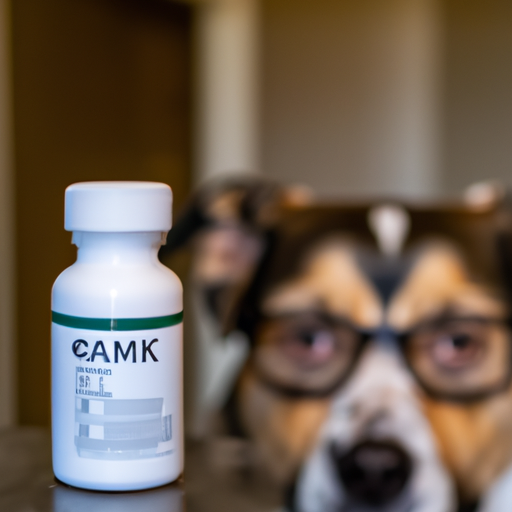Introduction
Rimadyl is a common medication prescribed by vets worldwide, but you may find yourself asking, “What exactly is Rimadyl used for in dogs?”
What is Rimadyl?
Rimadyl, also known as carprofen, is a non-steroidal anti-inflammatory drug (NSAID) used primarily for pain relief and inflammation reduction in dogs. Think of it as the doggy version of Ibuprofen, but formulated specifically for canine physiology.
Why is Rimadyl Prescribed?
Your veterinarian might prescribe Rimadyl for your furry friend for a variety of reasons:
- Postoperative Pain: If your dog has recently undergone surgery, Rimadyl can help manage the pain and discomfort that comes after the procedure.
- Osteoarthritis: Just like humans, dogs can develop arthritis as they age. Rimadyl eases the pain and inflammation associated with this condition, improving your dog’s mobility and quality of life.
- Injury: For injuries, a vet might prescribe Rimadyl to reduce inflammation and provide pain relief.
Side Effects and Considerations
While Rimadyl can be a godsend for dogs in pain, it’s not without its potential side effects. It’s essential to monitor your dog closely while they’re taking Rimadyl, and report any changes to your vet. Possible side effects could include:
- Decreased appetite
- Vomiting
- Diarrhea
- Lethargy
| Side Effect | Frequency | Action Needed |
|---|---|---|
| Decreased appetite | Common | Monitor, call vet if persists |
| Vomiting | Less common | Call vet immediately |
| Diarrhea | Less common | Call vet immediately |
| Lethargy | Common | Monitor, call vet if persists |
Alternatives to Rimadyl
If your dog experiences adverse reactions to Rimadyl or if you’re looking for a more natural alternative, consider the following:
- Physical therapy: Physical therapy can help manage pain and improve mobility, especially in dogs with osteoarthritis.
- Acupuncture: Some pet owners have found success in alleviating their dogs’ pain through acupuncture.
- Dietary changes: Certain foods can help reduce inflammation, potentially reducing the need for medication.
Frequently Asked Questions
Q: Can Rimadyl be given to other pets?
A: No, Rimadyl is specifically formulated for dogs and should not be given to other pets.
Q: How long can my dog take Rimadyl?
A: The duration of treatment varies depending on your dog’s condition. Always follow your vet’s guidance.
Q: Are there any long-term side effects of Rimadyl?
A: Long-term use can potentially lead to liver or kidney problems. Regular vet checkups are crucial if your dog is on a long-term Rimadyl regime.
Remember, the health and happiness of your four-legged friend are paramount. Consult with your vet, ask questions, and stay informed. Your dog is depending on it.



